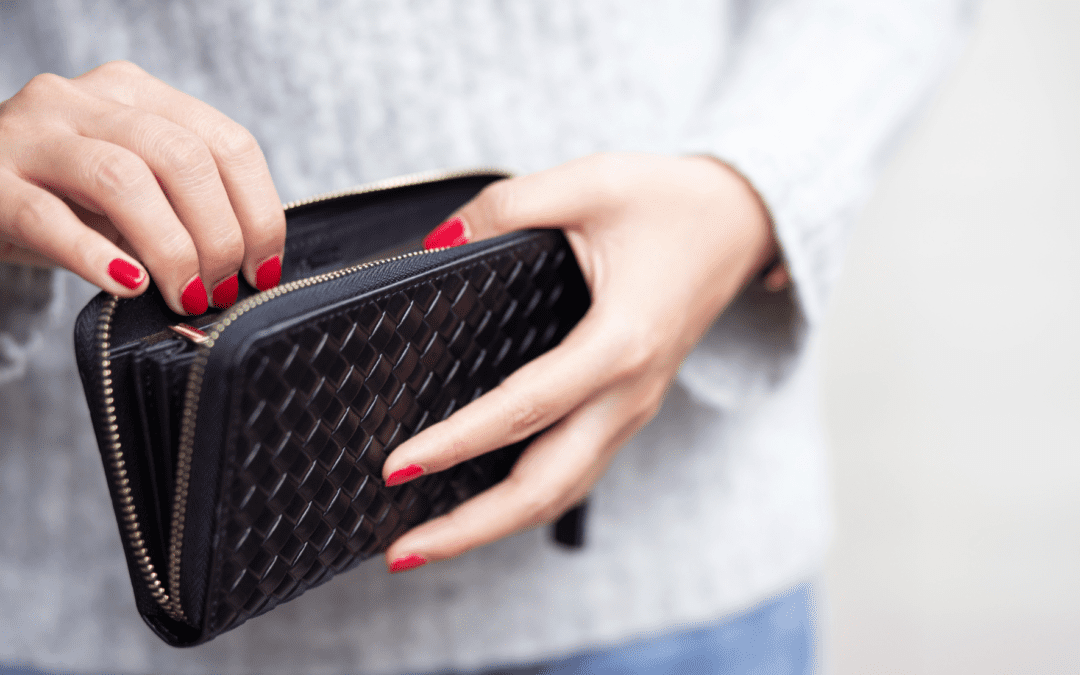Author: Margaret Fitzgerald
As a youth, I was proud to earn and save money. I recall being so excited when I had saved $1,000 for the first time. I was seventeen and I felt as if I was on my way to having a great fund for college.
When I had my first mania, it was as if my brain had a toggle switch that changed from saving money to being unable to keep any in my pocket. It seems that the switch has remained stuck in the wrong position ever since.
Now that I live on a fixed income due to being on disability, if I have extra money I give it to my mother or a trustworthy friend to hold for emergency purposes or unexpected expenditures.
I have tried diligently to hold onto money. I have gone through Dave Ramsey’s course on two separate occasions. I have gone through debt counseling. When the counselor looked at my finances, he said that it really was not how I spend money, but it was that I did not have enough of it.
I no longer keep a checkbook with actual checks. I find that if I write checks that I spend money faster than I log the checks in the register. Or I think that payday is coming quickly and I can write extra checks and it will not be a big deal. It is as if my brain becomes a big jumble and I cannot rationalize that the money can run out before the checks do. When I become hypomanic or completely overwhelmed, I will display non-sufficient funds in my checking account.
Bounced check fees are tough, and banks do not care if one is bipolar or not. They want for you to be obedient in not spending more than you have. I have probably paid thousands of dollars in non-sufficient funds fees.
I do not keep credit cards, not even an emergency one. In my situation, credit cards are dangerous. When I am experiencing hypomania, I have observed that everything becomes an emergency, such as dining out and making irrelevant purchases that I will regret later.
My irrational spending habits have caused me to file for bankruptcy on two separate occasions. Since the second bankruptcy, I have implemented the following rules in my life:
I pay with cash whenever possible. This includes going to various vendors and dropping off payments. This allows me to see the money being spent. If I have an empty wallet, I can go to the bank and draw money from my account. If I have no money in the bank, then my spending must halt.
Bills that must be mailed are sent through money order or certified check. Some bills come out of my savings account electronically. My debit card is only used for rare purchases which require a debit card. Many purchases over the internet can be made through Pay Pal. In my case, I have it set up that the funds for purchases are taken out of my savings account, where my disability check is deposited for my ease.
I used to beat myself up for my bad spending and for paying my bills in such a complicated manner, but my therapist helped me in rethinking the issue. She said that I have found a way that works for me to remain successful with my spending. I often do not have much money, but I have absolutely no debt.
If you have a similar situation to mine, please reach out for help. There are banking solutions to assist you if you are spending too much money, such as having someone at the bank question frequent or unusual seeming purchases. Also, one can set their debit card so that if the account is going to be overdrawn during a purchase that the card will be rejected in lieu of incurring non-sufficient funds fees.
Some people utilize representative payees to assist them with bill paying and in receiving an allowance. Also some utilize double signature checking accounts, where the person holding the account must have an authorized signature by another person listed on the account before the check is cashed.
The Dave Ramsey course taught about budgeting and the importance of having no debt. It was life changing to hear what percentage of my income should go to housing, while other percentages should go towards other expenditures.
Money does not have to be a hopeless situation. In my case, I have become successful by spending wisely and having strict protocols in place.
The content of the International Bipolar Foundation blogs is for informational purposes only. The content is not intended to be a substitute for professional medical advice, diagnosis, or treatment. Always seek the advice of your physician and never disregard professional medical advice because of something you have read in any IBPF content.


